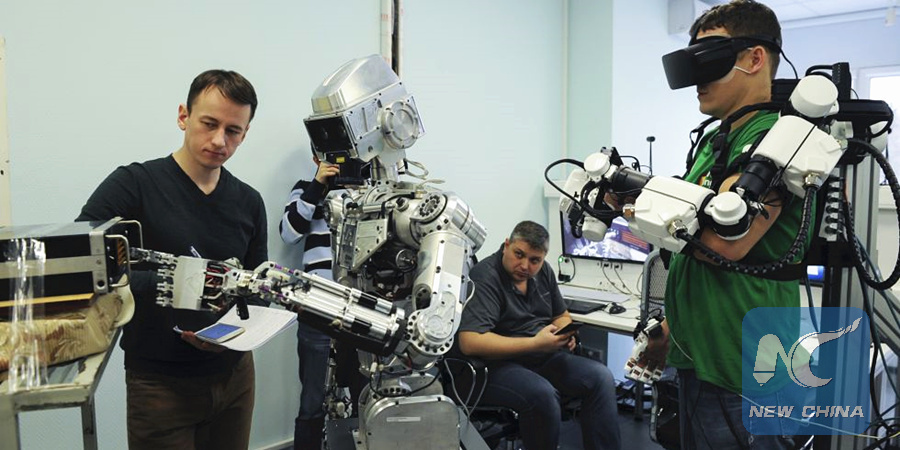
A Roscosmos picture shows an experiment on an android.
MOSCOW, Feb. 12 (Xinhua) -- Russia will step up research of remote-controlled robots resembling a human in outer space operations, Dmitry Rogozin, head of Russian state space corporation Roscosmos, said Tuesday.
"This is necessary to ensure safe operations on the outer side of a space station," Rogozin tweeted.
Rogozin said the decision was made after Russian cosmonauts Oleg Kononenko and Sergei Prokopyev on Dec. 12 performed a spacewalk to inspect a hole in the casing of the Soyuz MS-09 spaceship docked to the Russian segment of the International Space Station.
The operation to open an anti-meteorite protection shield in space, which lasted 7 hours and 45 minutes, was carried out for the first time in the history of world astronautics.
Roscosmos said on its website on Monday that six trainee cosmonauts completed a set of successful experiments on the operation of remote-controlled androids on Feb. 8.
"The experiment is quite promising. I am sure androids will find their place in the exploitation of the Solar System, including on the moon and Mars, as they are capable of working in an environment aggressive to humans," it quoted trainee cosmonaut Sergei Kud-Sverchkov as saying.

